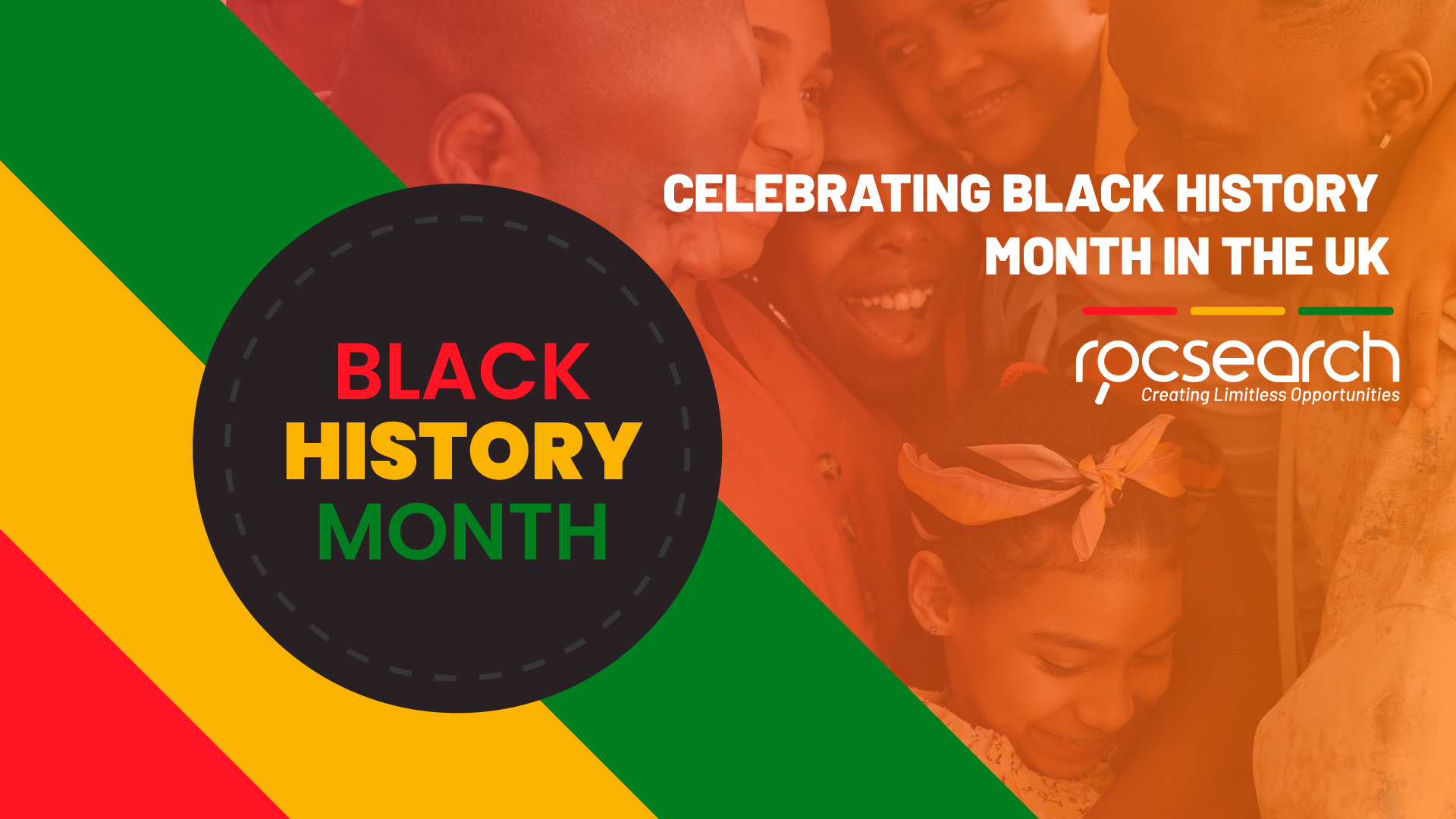
Celebrating Black History Month in the UK
02 Oct, 202310 minsCelebrating Black History Month in the UK This October is Black History Month here in the U...

Celebrating Black History Month in the UK
This October is Black History Month here in the UK. To mark the event, we’re exploring the origins of Black History Month. We’re uncovering why the UK celebrates in a different month to our friends over in the US (theirs is in February). And we’re investigating why the annual event is so important.
Come with us as we take a deep dive into Black History Month in Britain.
What is Black History Month and when did it start?
Black History Month is an annual observance, giving people a chance to understand and celebrate black heritage. It’s an opportunity to recognise and share the contributions people of African and Caribbean descent have made to the world.
Black History Month originated in the US. It began as Black History Week, launched in February 1926 by Carter G Woodson, a professor of history at Howard University and the child of former slaves. Later, the event was expanded, becoming officially designated as Black History Month in 1976. Since then, every US President has continued to designate February as Black History Month.
The event is also marked by other countries around the world, including Canada, Germany, Ireland, and the UK. Which brings us to…
Why does the UK observe Black History Month in a different month to the US?
Over in the States, February was chosen as Black History Month because it was the birth month of President Abraham Lincoln and abolitionist Frederick Douglass, both of whom played central roles in ending slavery in the US.
The UK celebrated its first official Black History Month in October 1987. It was arranged by Akyaaba Addai-Sebo, who came to the UK in 1984 after being forced to flee his home country of Ghana. Addai-Sebo, who worked for the Greater London Council as a coordinator of special projects in the Ethnic Minorities Unit, was spurred to action after a conversation with a colleague, in which she tearfully recalled her six-year-old son asking why he couldn’t be white.
With the Greater London Council’s support, Addai-Sebo organised a series of lectures and concerts across 1985 and 1986, celebrating the history of Africans and their contribution to the world. Incredibly, some of the attendees included Ray Charles, Jesse Jackson and Winnie Mandela.
Then, realising that a number of significant anniversaries were coming up across 1987/88, including the 30th anniversary of Ghana’s independence, Addai-Sebo called for an African Jubilee year in celebration, and drafted a declaration designating October 1987 as Black History Month. October is an important month in Africa, as traditionally it’s when chiefs and leaders gather to discuss key issues and settle differences. So that’s why we in the UK celebrate Black History Month at a different time to the US.
How is Black History Month observed in the UK?
Black History Month is observed by communities, schools and workplaces across the UK. This year’s events include a festival of performances and talks by the Royal Ballet, plus a tour at the Natural History Museum celebrating female scientists of colour. Remembering the contribution of black women is a particular focus for 2023, as is celebrating the 75th anniversary of HMT Empire Windrush’s arrival in the UK. There’s also a national poetry competition open to school, college and university students.
Head to www.blackhistorymonth.org.uk for a full list of events and lots more information about Black History Month.
Why do we need Black History Month in the UK?
Greater attention has been paid to black history and inequality in the last few years, partly due to the Windrush scandal, which highlighted the plight of people from the Windrush generation who were wrongly detained, denied legal rights and, in many cases, wrongly deported. The Black Lives Matter movement has also shed light on racism.
And yet black history is still an underrepresented topic in the UK. Without events like Black History Month, many young people wouldn’t learn anything about black history. Wales made mandatory changes to its school curriculum in 2022 to include lessons about black history, but the topic is not mandatory in the English curriculum.
And we can’t ignore the fact that lack of diversity and inequality remains an issue across the UK, especially in certain sectors. The tech sector, for example, is expanding almost three times faster than the rest of the UK economy, and is worth almost £200 billion a year – and yet only 15% of this large and growing workforce are from BAME backgrounds.[i]
As a specialist technology recruitment company, we’re always interested in diversity, equity and inclusion. And we’re passionate about the future of technology – a future that not only celebrates the contribution of people from BAME backgrounds, but also brings more diversity into the sector. Discover more about Roc Search.




